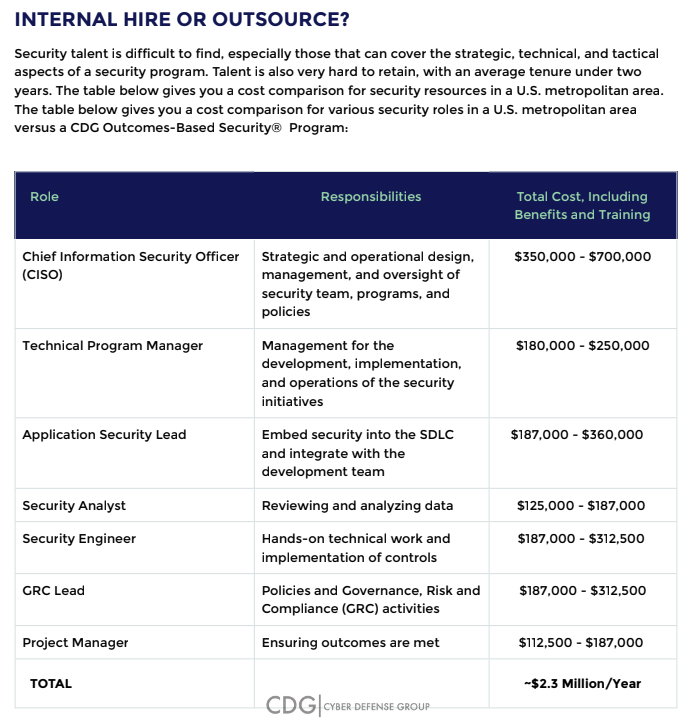Zero Trust a Network Architecture or Framework?
Everyone is talking about Zero Trust as the new standard in Cyber Security. Gone are the days of perimeter protection alone and security over public […]

Security professionals are the lifeblood to keep organizations safe, secure, and open for business.
What do security professionals do?
This is a very rough outline suggesting a standard role-based approach to staffing security professionals. Tech layoffs across the country total 278,927, from January 2022 through today. What you DO NOT see amongst those layoffs are in the security sector. Despite large technology focused companies like Meta, Amazon, Twitter, Bytedance, HP, Cisco and others being technology based, none of them reported laying off security professionals. On the contrary, according to US Bureau of Labor statistics, security jobs are projected to grow 35% over the next 10 years while all occupations stand to grow 5%^. Moreover, median pay is now above $100,000 per year across the country and growing rapidly. Most organizations can neither keep up with the pace of change protecting their digital estate, nor can they keep professionals happy, well paid, and up to date with the most current trends.
According to Cyber Defense Group, to staff for the roles-based approach above, the average annual cost is around $2.3 Million/Year.

While according to IBM the average cost of a data breach in the United States is now a WHOPPING $9.44 Million! And, almost half of those happen in the cloud.
This same report showed companies who have an Incident Response (IR) plan and TEST regularly save an average cost of $2.66 Million against those who do not.
The net here is folks need to seriously consider some type of assistance from partners who focus exclusively on Cyber Security. While program management makes a lot of sense for organizations to ensure service levels are met along with contract terms and conditions, a plan with regular testing and IR is the key to success.
Don’t do it alone. RISE has a vast partner network offering a services first approach to security. We do not represent products rather we support solution providers. Firms who offer these technologies delivered as a service, along with the tools, resources, and expertise to support them.
$9.44 Million per breach! We can help you find the right partner based on your existing investments and align with potential gaps unique to your environment. One size does not fit all and there is no silver bullet.
Everyone is talking about Zero Trust as the new standard in Cyber Security. Gone are the days of perimeter protection alone and security over public […]